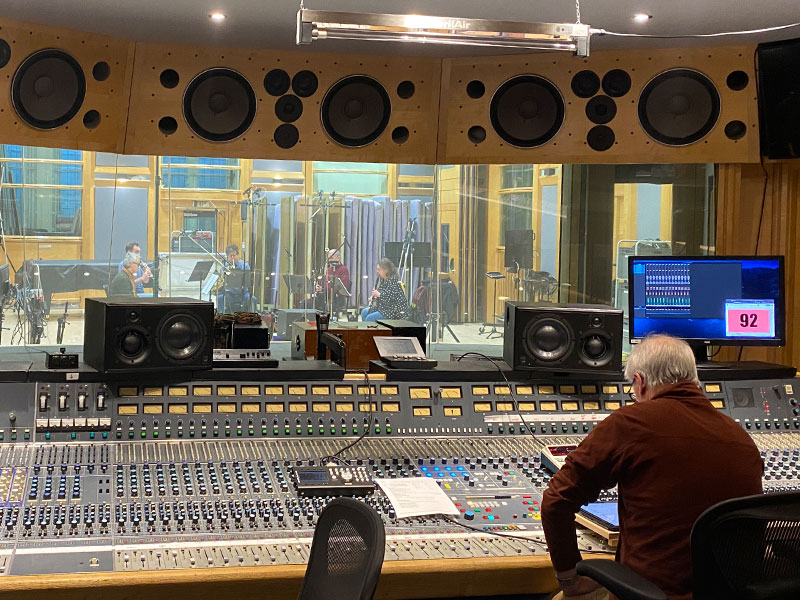Windswept Vol. II
Loretta K. Notareschi composer
David Osbon composer
L Peter Deutsch composer
Kenneth A. Kuhn composer
Brian Field composer
Ferdinando Desena composer
Andrew Lewinter composer
New London Chamber Ensemble
Rigorous repertoire is at the ready on WINDSWEPT VOL. II from Navona Records, a sweeping sonic force of contemporary chamber works for woodwind quintet. Performed by the New London Chamber Ensemble, the works of seven composers soar with modern flair, making use of various instrumental textures and irregular meters with jazz-driven influences sprouting from classical roots. Dynamic displays of dexterity and luscious interplay between performers burst with refined energy in this recording, uplifting listeners into a satisfying and equally enticing atmosphere.
Listen
Stream/Buy
Choose your platform
Track Listing & Credits
| # | Title | Composer | Performer | |
|---|---|---|---|---|
| 01 | Moon Jazz: River on the Moon | Loretta K. Notareschi | New London Chamber Ensemble | Robert Manasse, flute; Peter Facer, oboe; Neyire Ashworth, clarinet; Stephen Stirling, horn in F; Meyrick Alexander, bassoon | 5:24 |
| 02 | The Spirits of Sabate: Inundation and Prayer | David Osbon | New London Chamber Ensemble | Robert Manasse, flute; Peter Facer, oboe; Neyire Ashworth, clarinet; Stephen Stirling, horn in F; Meyrick Alexander, bassoon | 4:22 |
| 03 | The Spirits of Sabate: Procession and Hymn | David Osbon | New London Chamber Ensemble | Robert Manasse, flute; Peter Facer, oboe; Neyire Ashworth, clarinet; Stephen Stirling, horn in F; Meyrick Alexander, bassoon | 3:06 |
| 04 | The Spirits of Sabate: Celebration and Song | David Osbon | New London Chamber Ensemble | Robert Manasse, flute; Peter Facer, oboe; Neyire Ashworth, clarinet; Stephen Stirling, horn in F; Meyrick Alexander, bassoon | 3:27 |
| 05 | Toward the Mountains | L Peter Deutsch | New London Chamber Ensemble | Robert Manasse, flute; Peter Facer, oboe; Neyire Ashworth, clarinet; Stephen Stirling, horn in F; Meyrick Alexander, bassoon | 3:51 |
| 06 | Twilight Waltz | L Peter Deutsch | New London Chamber Ensemble | Robert Manasse, flute; Peter Facer, oboe; Neyire Ashworth, clarinet; Stephen Stirling, horn in F; Meyrick Alexander, bassoon | 3:32 |
| 07 | Variations on a Commoner Theme, No. 1 | Kenneth A. Kuhn | New London Chamber Ensemble | Robert Manasse, flute; Peter Facer, oboe; Neyire Ashworth, clarinet; Stephen Stirling, horn in F; Meyrick Alexander, bassoon | 9:32 |
| 08 | Five, Four by Four | Brian Field | New London Chamber Ensemble | Robert Manasse, flute; Peter Facer, oboe; Neyire Ashworth, clarinet; Stephen Stirling, horn in F; Meyrick Alexander, bassoon | 5:04 |
| 09 | Midsummer Quintet | Ferdinando DeSena | New London Chamber Ensemble | Robert Manasse, flute; Peter Facer, oboe; Neyire Ashworth, clarinet; Stephen Stirling, horn in F; Meyrick Alexander, bassoon | 8:56 |
| 10 | Woodwind Quintet: Allegro | Andrew Lewinter | New London Chamber Ensemble | Robert Manasse, flute; Peter Facer, oboe; Neyire Ashworth, clarinet; Stephen Stirling, horn in F; Meyrick Alexander, bassoon | 6:16 |
| 11 | Woodwind Quintet: Dumka: Andante | Andrew Lewinter | New London Chamber Ensemble | Robert Manasse, flute; Peter Facer, oboe; Neyire Ashworth, clarinet; Stephen Stirling, horn in F; Meyrick Alexander, bassoon | 6:54 |
| 12 | Woodwind Quintet: Rondo | Andrew Lewinter | New London Chamber Ensemble | Robert Manasse, flute; Peter Facer, oboe; Neyire Ashworth, clarinet; Stephen Stirling, horn in F; Meyrick Alexander, bassoon | 6:45 |
Recorded November 9-12, 2021 at AIR Studios Studio 1 in London, United Kingdom
Session Producer Brad Michel
Session Engineers Chris Barrett, Brad Michel
Editing, Mixing & Mastering Brad Michel
Executive Producer Bob Lord
Executive A&R Sam Renshaw
A&R Director Brandon MacNeil
A&R Chris Robinson, Danielle Lewis, Mike Juozokas
VP of Production Jan Košulič
Production Director Levi Brown
Production Assistant Martina Watzková
Audio Director Lucas Paquette
VP, Design & Marketing Brett Picknell
Art Director Ryan Harrison
Design Edward A. Fleming, Morgan Hauber
Publicity Patrick Niland, Brett Iannucci
Content Manager Sara Warner
Artist Information

Loretta K. Notareschi
Called a “bright wom[a]n with big ideas” (Souls in Action), Colorado-based composer Loretta K. Notareschi (b. 1977) seeks to create “compassion” (303 Magazine) and connection through her “powerful” (The Denver Post) and “deeply personal” (5280 Magazine) music. Whether writing for string quartet or symphony orchestra, church congregations or classical ukulele players, she seeks to “connec[t] with the audience” (303 Magazine) and move listeners with music of meaning.
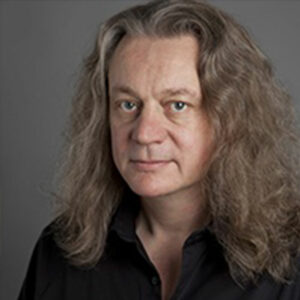
David Osbon
David Osbon is a composer, conductor, and academic whose music has been performed, broadcast, and recorded around the world. Most of this international recognition comes from the years he spent as a researcher and professor in cities as diverse as Philadelphia, The Hague, and Istanbul. Osbon’s compositions have received many awards including the Arts Council of Great Britain DIO Award, the RVW Trust electro-acoustic music award, Hilda K. Nietsche Prize, David A. Halstead Prize, Academy of Music (Vienna), and the New Symphony (Vienna Prize). Still Waiting for the Revolution… for piano trio was a prize winner in both the Franz Schubert and the Clements Memorial prizes for chamber music.
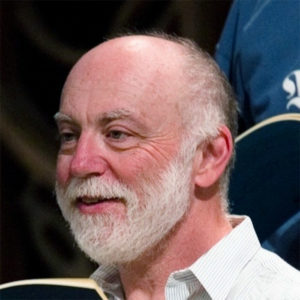
L Peter Deutsch
L Peter Deutsch is a native of Massachusetts, now living in Sonoma County CA, and British Columbia, Canada. He writes primarily for small instrumental or a capella vocal ensembles, spanning styles from devotional to romantic to jazzy, and from Renaissance to early 20th century. Works to date include four choral commissions; releases through PARMA Recordings include music for chorus, string quartet, woodwind and brass quintets, piano trio (featuring work with Trio Casals), and full orchestra.
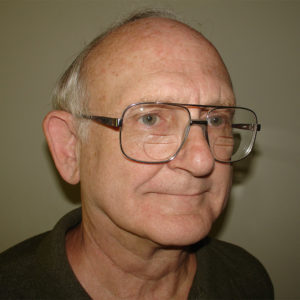
Kenneth A. Kuhn
Kenneth A. Kuhn (Ken) (b. 1954) is a retired electrical engineer specializing in electronic circuit design who had the privilege of growing up with a great appreciation of classical music. Over the years classical music enhanced mental skills valuable for Kuhn’s engineering career. Composing music and designing electronic circuits are very interrelated as each enhances the other. He began composing music in his youth in the 1960s and learned how to compose by carefully listening to the many classical composers. His favorite composers include Anton Bruckner and Gustav Mahler. Ken composes because, “There is music I want to hear but since no one has written it then I must write it myself.”
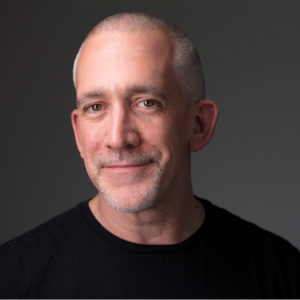
Brian Field
Brian Field’s music is an eclectic fusion of lyricism and driving rhythm that brings together elements of post-romanticism, minimalism, and jazz. Field has received a host of awards, including the RMN Classical recording prize, the Benenti Foundation recording prize, Briar Cliff Choral Music Competition (first prize), the Victor Herbert ASCAP Young Composers’ Contest (first prize), among many others.
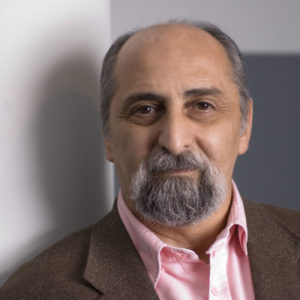
Ferdinando DeSena
Ferdinando DeSena is a Miami-based composer who was born in Brooklyn NY. His earliest musical experiences were with neighborhood pop, rock, and doo-wopp groups. He worked as a musician in Ithaca NY for 13 years, playing in several regional bands as keyboard player and lead singer. His final group was Uptown Revue, which he led for seven years.
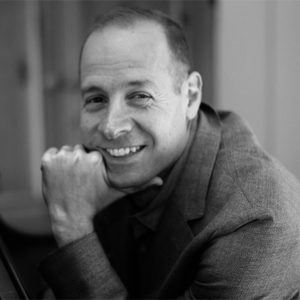
Andrew Lewinter
Before turning his attention to composition, Andrew Lewinter had a long and varied career as an orchestral horn player and soloist. As a composer, Lewinter has a decidedly tonal and neo-romantic style that is often very contrapuntal and always emotionally gripping. His works include sonatas for each of the brass instruments and piano, a quartet for trumpet, horn, trombone and piano, quintets for both horn and string quartet and oboe and string quartet, a woodwind quintet, a string quartet, and a trio for oboe, horn, and piano, among other works scored for a variety of chamber ensembles. Lewinter’s compositions have been widely performed and recorded, and are available on Navona Records and Ablaze records.

New London Chamber Ensemble
The New London Chamber Ensemble is a wind quintet with a difference. For over two decades the NLCE has challenged traditional ideas of chamber music with their innovative programs combining classic repertoire with semi-staged works incorporating drama, speech, and action.

